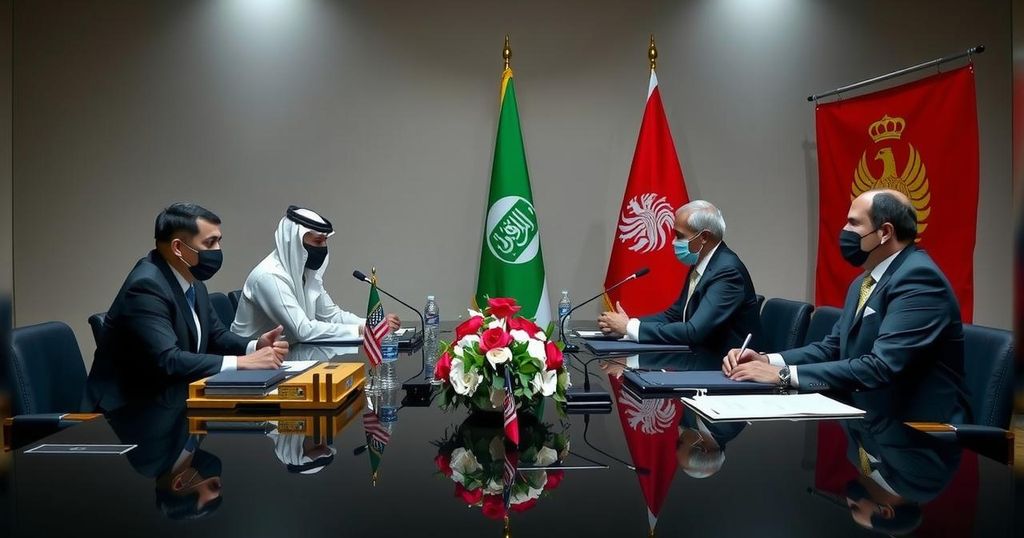Chief Adviser Professor Muhammad Yunus met with several world leaders at COP29 in Baku, Azerbaijan, to discuss strategies for addressing climate change. Notable discussions included interactions with leaders from the Maldives, Bosnia, Liechtenstein, Bhutan, and the UAE. His attendance underscores the significance of COP29 as a crucial opportunity to mobilize action against climate threats, particularly in a historically oil-rich region.
On November 12, 2023, Chief Adviser Professor Muhammad Yunus participated in the 29th Conference of the Parties (COP29) to discuss pressing climate change issues with global leaders. During the summit, held in Baku, Azerbaijan, he engaged in discussions with several prominent figures, including Prime Minister Daniel Risch of Liechtenstein and Prime Minister Tshering Tobgay of Bhutan. Furthermore, Professor Yunus also met with leaders from the Maldives and Bosnia and Herzegovina, notably President Mohamed Muizzu and President Denis Becriovic, respectively, along with President Sheikh Mohamed bin Zayed Al Nahyan of the United Arab Emirates. These interactions aimed to foster international collaboration on climate initiatives in a region once known for its oil production. Professor Yunus arrived in Baku on November 11, highlighting the significance of COP29 as a crucial moment for advancing efforts against the escalating climate crisis, before his return scheduled for November 14.
The annual climate summit, COP29, serves as a critical platform for leaders from around the globe to address the multifaceted challenges posed by climate change. Situated in Baku, Azerbaijan, a historical center of the oil industry, this year’s conference underscores the need for transformation towards sustainable practices. Participants, including Professor Yunus, are deliberating strategies to mitigate the adverse effects of climate change, a reality that is increasingly threatening ecosystems and human livelihoods worldwide. The summit represents a vital opportunity for nations to unilaterally and collectively reinforce their commitments to combating climate change and fostering environmental resilience.
In conclusion, the engagements of Chief Adviser Professor Muhammad Yunus at COP29 signify not only the importance of dialogue among global leaders regarding climate actions but also the urgency of addressing climate change in the wake of its escalating threats. By meeting with heads of state from various nations, Professor Yunus has contributed to building a collaborative approach essential for formulating effective responses to this global challenge. As the climate crisis continues to intensify, the outcomes from COP29 may set pivotal precedents for international environmental policy.
Original Source: www.tbsnews.net






